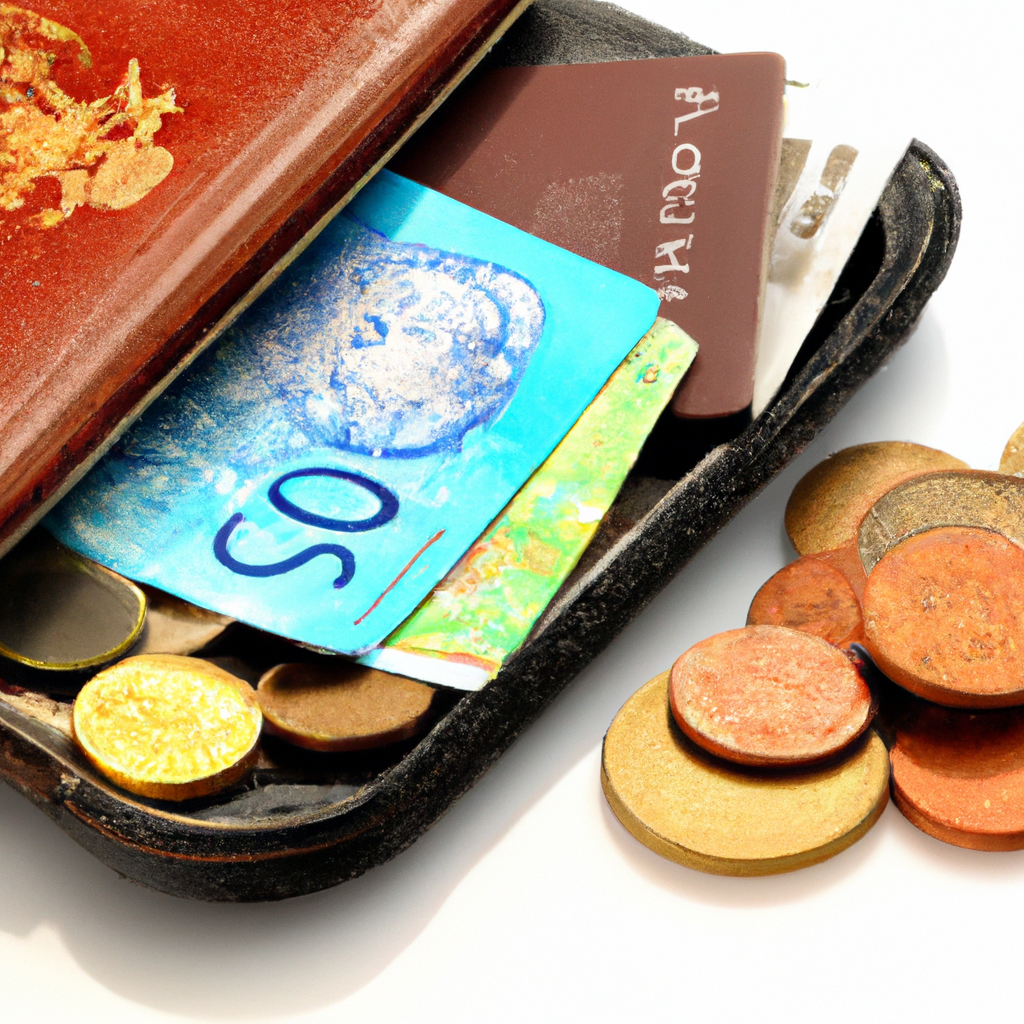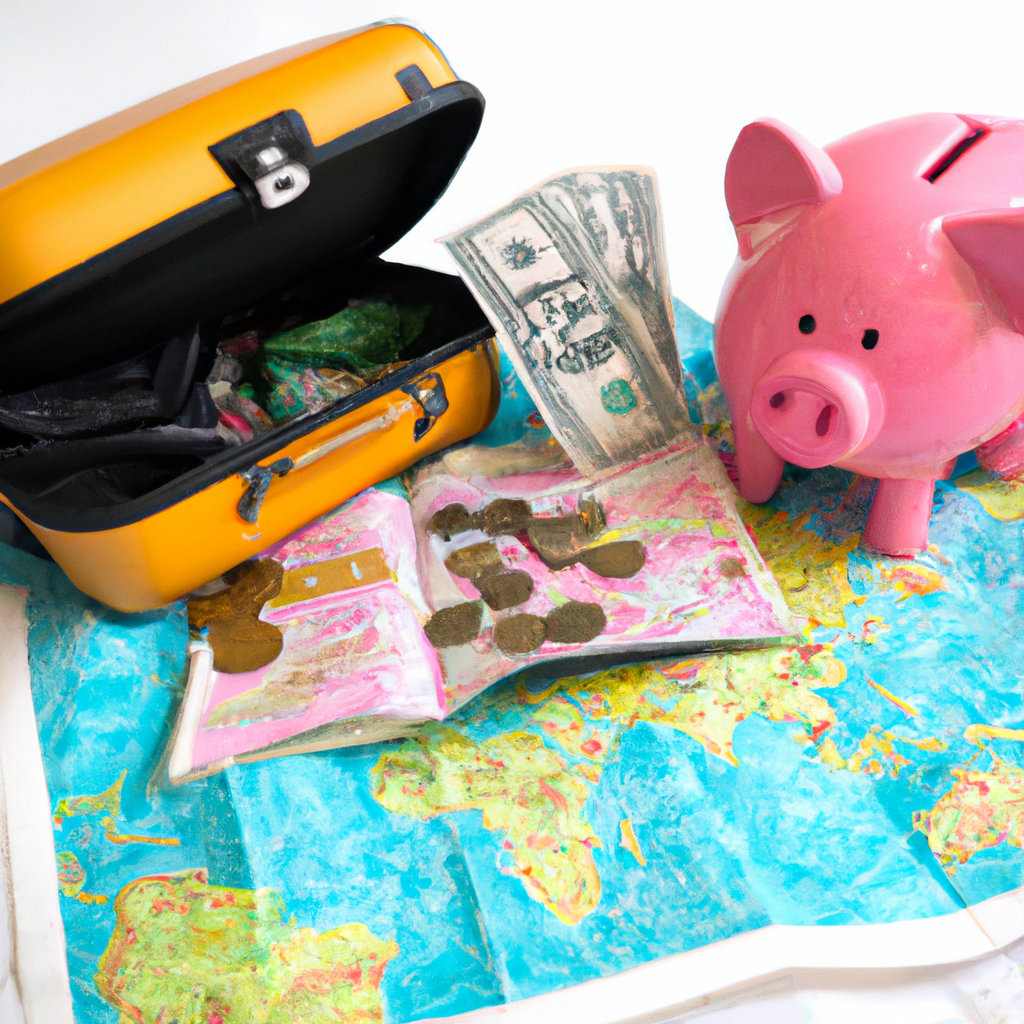
Are you dreaming of a memorable vacation but worried about the impact on your wallet? Don’t fret, because in this article, we will guide you on planning a vacation on a budget, allowing you to enjoy an incredible getaway without breaking the bank. By following a few simple steps, you can ensure maximum savings while still indulging in all the wonderful experiences and adventures your destination has to offer. So, get ready to embark on a wallet-friendly journey that will leave you with both memories and extra cash in your pocket.
Choosing the Destination
When it comes to planning a vacation on a budget, choosing the right destination can make a big difference. One of the first things to consider is exploring local destinations. Not only will you save money on airfare, but you’ll also have the opportunity to truly immerse yourself in the local culture and experience something new. Look for destinations within driving distance or short flights away.
Another way to save money is by considering off-peak times for your vacation. Traveling during the off-season can often lead to significant savings on flights, accommodations, and even activities. Popular tourist destinations tend to be less crowded, which means you can enjoy a more peaceful and affordable vacation experience. Research when the off-peak season is for your desired destination and take advantage of the cost savings.
Researching affordable countries is also key to planning a vacation on a budget. Some countries have a lower cost of living, which translates to more affordable accommodations, dining, and activities. Do some research to find out which countries offer the best value for your money. Consider factors such as exchange rates, cost of living, and the overall affordability of the destination. By choosing an affordable country, you can stretch your vacation budget even further.
Deciding on Accommodation
Once you’ve chosen your destination, the next step is to decide on accommodation. There are plenty of options available that can help you save money while still providing a comfortable place to stay.
One option to consider is alternative accommodation. Instead of staying in a traditional hotel, look into options such as vacation rentals, hostels, or even camping. These alternatives can often be much more affordable, especially if you are traveling with a group or want to experience something different. Plus, they often provide unique amenities and a chance to connect with fellow travelers.
If you prefer the comfort and convenience of a hotel, there are still ways to find budget-friendly options. Look for budget hotels that offer basic amenities at a lower cost. These hotels may not have all the bells and whistles of luxury accommodations, but they can provide a comfortable place to rest and relax after a day of exploring.
Another option is to check home rental websites. These websites allow you to rent a room or an entire home from local residents. This can be a great way to save money and experience life as a local. Plus, you’ll have access to a kitchen, which can help you save even more on dining expenses.

Transportation Options
Transportation is another important factor to consider when planning a vacation on a budget. By exploring different transportation options, you can often find significant savings.
Start by comparing flight prices. Use flight comparison websites or apps to find the best deals on flights to your destination. Be flexible with your travel dates and consider flying on weekdays or during off-peak times for even more savings. Additionally, booking your flight well in advance or at the last minute can sometimes lead to discounted prices.
Consider alternative modes of transportation, especially if you are traveling within the country or region. Look into train or bus options, as they can often be more affordable than flying. Not only will you save money, but you’ll also have the opportunity to see the countryside and enjoy the journey.
Another way to save on transportation is by looking for discounted deals. Many airlines, bus companies, and train services offer special promotions or discounts, especially during certain times of the year. Keep an eye out for these deals and take advantage of them to save money on your transportation costs.
Creating a Budget
Creating a budget is an essential step in planning a vacation on a budget. By determining your total trip cost, allocating amounts for each expense, and accounting for unexpected expenses, you can have a clear idea of how much you need to save and spend.
Start by determining your total trip cost. This includes all expenses, such as flights, accommodation, transportation, food, activities, and any additional costs like travel insurance or visa fees. Add up all the estimated costs to get an idea of the total amount you will need for your vacation.
Once you have the total trip cost, allocate amounts for each expense category. Decide how much you are willing to spend on flights, accommodation, transportation, food, and activities. Setting limits for each category will help you stay within your budget and make informed choices when planning.
It’s also important to account for unexpected expenses. No matter how well you plan, there are often unexpected costs that arise during a vacation. Set aside some extra money as a buffer to cover any unforeseen expenses that may come up. This will help you avoid any financial stress during your trip and ensure a smoother vacation experience.

Saving on Flights
Flights are often one of the biggest expenses when planning a vacation. However, there are several strategies you can use to save money on your flights.
One of the best ways to save on flights is to be flexible with your travel dates. Prices for flights can vary significantly depending on the day of the week and the time of year. Consider flying on weekdays or during off-peak times, as these flights are often cheaper. Use flight comparison websites or apps to find the best deals and select the most budget-friendly travel dates.
Another strategy to consider is to accept layovers and connections during your journey. Direct flights are often more expensive, so choosing flights with layovers can help you save money. Just make sure to allow yourself enough time between connecting flights to avoid any stress or rushing.
Signing up for fare alerts is another great way to save on flights. Many airlines and travel websites offer email or app notifications when prices drop for certain routes. By signing up for these alerts, you can stay on top of any price changes and take advantage of discounted fares.
Reducing Accommodation Costs
accommodation costs can also add up quickly, but there are several ways to reduce these expenses and stay within your budget.
Traveling during off-peak seasons is one of the most effective ways to save on accommodation costs. During peak tourist seasons, prices for hotels and vacation rentals tend to be higher. However, by choosing to travel during quieter times, you can often find significant discounts and deals on accommodation. Plus, you’ll be able to enjoy a more peaceful and less crowded vacation experience.
Booking in advance can also lead to savings on accommodation. Many hotels and rental properties offer early booking discounts or promotions. By making your reservations well in advance, you can secure lower rates and avoid any last-minute price increases. Additionally, booking early gives you a wider selection of options to choose from, ensuring that you find the most affordable and suitable accommodation for your needs.
Consider shared accommodation options as well. Sharing a room or renting a vacation home with friends or family members can significantly reduce the cost per person. It’s a great way to split the cost while still enjoying a comfortable and enjoyable vacation experience.

Cutting Transportation Expenses
Transportation costs can eat into your vacation budget, but there are plenty of ways to cut these expenses and save money.
One of the easiest ways to save on transportation is to use public transportation whenever possible. Many cities have efficient and affordable public transportation systems, including buses, trains, and subways. By utilizing these options, you can save money on taxi fares or rental car fees. Plus, you’ll have the opportunity to experience the local culture and navigate the city like a local.
Renting a car from local agencies can sometimes offer better deals than large international car rental companies. Local agencies often have lower prices and may even offer special promotions or discounts. Do some research and compare prices from different rental agencies to find the most budget-friendly option for your needs.
Consider carpooling services as well, especially if you are traveling with a group. Services like UberPool or Lyft Line allow you to share rides with other passengers heading in the same direction, reducing the overall cost of transportation. It’s a convenient and affordable way to get around, especially in busy cities where parking and traffic can be a challenge.
Saving on Food and Drinks
Food and drink expenses can quickly add up, but there are several strategies you can use to save money in this category.
Cooking your own meals is one of the best ways to save on food expenses. If you have access to a kitchen in your accommodation, take advantage of it and prepare some of your meals. Visit local grocery stores or markets to buy fresh ingredients and cook simple, delicious meals. Not only will this save you money, but it can also be a fun and rewarding experience.
Look for local food markets or street vendors for affordable and authentic dining experiences. These places often offer delicious meals at lower prices compared to restaurants. You’ll get to taste the local cuisine and support small businesses at the same time.
Trying street food is another great way to save on food expenses while experiencing the local culture. Street food stalls or food trucks can be found in many destinations and offer a wide range of affordable and tasty options. Take the opportunity to try some local specialties and flavors without breaking the bank.

Optimizing Sightseeing
Sightseeing is a major part of any vacation, and there are ways to make the most of your sightseeing experiences while staying within your budget.
Research free attractions in your destination. Many cities have a variety of free attractions, such as museums with free admission days or public parks and gardens. Take advantage of these opportunities to explore and learn about the destination without spending a dime.
Consider buying city passes or discount cards. Many cities offer passes that grant you discounted access to multiple attractions or activities. These passes can be a great way to save money while still enjoying the top sights. Do some research to find out which options are available in your destination and compare prices to find the best value.
Joining free walking tours is another excellent way to optimize your sightseeing experience. Many cities offer free walking tours led by knowledgeable guides who provide interesting facts and insights about the destination. Not only will you learn more about the city, but you’ll also get to explore the main highlights without paying for a guided tour.
Finalizing Booking and Payment
When you’re ready to finalize your bookings and make payments, there are a few things to keep in mind to ensure you’re getting the best deals.
Double-check all the travel deals you have selected. Before making any payments, review all the details and fine print to make sure everything is as expected. Confirm the dates, the accommodations, and any additional services or activities you have booked. This will help you avoid any surprises or unnecessary expenses.
If you have a credit card with rewards or points, consider using them towards your vacation expenses. Many credit card companies offer travel reward programs or points that can be redeemed for flights, accommodations, or even cashback. Take advantage of these rewards to save money on your vacation costs.
Lastly, consider purchasing travel insurance to protect yourself against unforeseen circumstances. While travel insurance comes at an additional cost, it can provide peace of mind knowing that you’re covered in case of cancellations, lost baggage, or medical emergencies. Compare different insurance options and choose a policy that suits your needs and budget.
Planning a vacation on a budget requires careful consideration and research, but with these steps, you can save money without compromising on the quality of your experience. By choosing affordable destinations, finding budget-friendly accommodations, exploring transportation options, creating a realistic budget, and making smart choices in each category, you can enjoy an unforgettable vacation without breaking the bank. Happy travels!




